Exclusive: Low maximum stake, set to be announced on Friday, will apply to players under 25, the Guardian understands
Get Started for FREE
Sign up with Facebook Sign up with X
I don't have a Facebook or a X account

 Your new post is loading... Your new post is loading...
 Your new post is loading... Your new post is loading...
Measure has been proposed for inclusion in election manifesto amid rising health concerns for young people
Graham Watson's insight:
The Labour Party are considering introducing a ban on sales of energy drinks to children, and as a teacher, I would support this. Their consumption is linked to lower levels of sleep, and poorer quality sleep is related to ill health.
Mount Everest is littered with an estimated 50 metric tons of waste, and each climber generates an average of 8 kilograms more. The Nepalese government spends $7.5 million yearly on the Mountain Clean-up Campaign, retrieving dozens of tons of waste from Mount Everest and nearby peaks. But it's still not enough to deal with the seemingly insurmountable trash problem. One organization, Sagarmatha Next, is raising awareness of the issue by making art out of trash.
Graham Watson's insight:
This Business Insider clip looks at the negative externalities of waste on Mount Everest, where there's a massive issue, which is difficult to tackle at high altitudes. It looks at how one organization is trying to overcome the issue.
This January was the driest in history with a survey suggesting one in five drinkers gave up alcohol.
Graham Watson's insight:
A nice way of introducing a number of concepts - and revealing the synoptic nature of Economics. There's been a marked change in consumer tastes, as a result of changing attitudes, D&S factors affecting the price of non-alcoholic drinks, and you could also illustrate both negative externalities and talk about productivity if you wish.
As ever, lots to ponder.
Rishi Sunak announces the plan saying "we must act" to tackle a rise in vaping among children.
Graham Watson's insight:
The government are going to legislate to ban disposable vapes, seemingly on the grounds that they are largely responsible for a rise in children vaping. However, is this good economics? Do bans ever work? Certainly Prohibition in the United States wasn't a success and libertarians will simply argue that it will push people into unregulated markets worsening outcomes.
It seems that even the government isn't convinced by its own argument though; the adding of the rider that they should also be banned because of the negative externalities associated with their disposal suggest that they're trying to convince you by weight of argument rather than reasoning.
Air pollution in South Asia causes an estimated 2 million premature deaths each year and reduces life expectancy by average 5 years. It incurs significant economic costs, places a heavy burden on the healthcare system, and takes a toll on the workforce. Some of the major sources of pollutants include combustion of solid fuels for cooking and heating, emissions from small industries such as brick kilns, burning of municipal and agricultural waste, and vehicular pollution. Air pollution is not restricted by any borders, and more than 50% of the air pollution in major cities is not local but travels from outside. Curbing air pollution requires close coordination between cities, states, and countries. Regional cooperation can help implement cost-effective joint strategies that leverage the interdependent nature of air quality.
Graham Watson's insight:
This World Bank clip looks at the negative externalities associated with air pollution in South Asia, where 2 million people per year die as a result. This clip looks across the region at a number of potential solutions - the roll out of more efficient methods of cooking, greater take-up of electric vehicles and the modernization of farming practices would all help tackle this market failure.
Leaked papers suggest United Utilities logged dozens of incidents as less serious than they had been.
Graham Watson's insight:
Tonight's Panorama on BBC1 looks at whether water companies have systematically engaged in under-reporting of marine pollution, and suggests that it has evidence that United Utilities has been guilty of this.
If true, it might be the case that the poor performance of the water companies has been understated. and, surprise, surprise, the pay of their executives not reflect this.
Elfbar and Lost Mary call for tighter restrictions on vape sales ahead of government clampdown.
Graham Watson's insight:
The UK's leading vape brand Elfbar has voluntarily agreed to drop its sweet and soft-drinks flavours, prior to the closure of a government consultation on vapes on December 6. It's interesting that the industry has opted to regulate itself prior to being regulated by the government but also rather suggests that they were aware that marketing these products was unethical in the first place.
The move is part of a crackdown aimed at protecting children from becoming addicted to nicotine.
Graham Watson's insight:
Australia is banning the import of vapes among a range of measures to tackle a perceived rise in vaping among young people. The other measures include stopping single-use vapes from being made, advertised, and supplied in the country. This is despite the fact that you already need a doctor's prescription to buy vapes in Australia.
Is this good economics though? There seem to a be a lot of costs associated with all of these moves, and what's the evidence on whether or not vaping is better than smoking? And given the preponderance of vaping, won't a shadow market for vapes simply emerge?
Harmful habits are worsening public health, says report, as groups urge crackdown on ‘irresponsible’ industries
Graham Watson's insight:
A coalition of campaign groups have commissioned a report looking at the extent to which businesses benefit from smoking, excess drinking and junk food. As a result, they're able to trumpet the fact that these firms earn £53 billion in profit from these activities that are deleterious to public health and generate negative externalities.
However, is it really this straightforward. In looking at the profits, isn't the research likely to be focussing on the costs of these activities in a narrowly defined fashion - does all consumption of alcohol and junk food generate negative externalities, for example? And what about the compensating benefits? Surely all of the activities generate utility, so the net effects of this are likely to be considerably smaller.
Editorial: This month’s Cop28 climate summit will focus on greenhouse gas emissions from agriculture. Governments need to take note
Graham Watson's insight:
This Guardian editorial flags up the fact that food production is one of the biggest emitters of greenhouse gases and yet there's been little action taken to increase the sustainability of agriculture. It's calling for this issue to be tackled by COP28.
Plans by nations including Saudi Arabia, the US and UAE would blow climate targets and ‘throw humanity’s future into question’
Graham Watson's insight:
Reading this sort of think is rather depressing for a morning; the US is of the view that the world's petrostates are, unsurprisingly, from a self-interested point of view, prepared to expand fossil fuel production. The flipside in doing so is that it would make the achievement of climate change targets impossible.
We return to the age old problem with policymaking: accountability. You'd have thought that imperilling the future existence of life on earth would be something that we'd like to deter, and yet the people potentially responsible for these decisions are going to be no more or less affected by them than you or I.
Environmental and health experts say UK grows or imports two and a half times the population’s recommended intake
Graham Watson's insight:
This article looks at a report that suggests that the UK government should be dealing with sugar producers in the same way it deals with firms that pollute the air or water. In essence, it is looking for intervention in the market to put a quota on domestic sugar production and cap imports, which strikes me as remarkably interventionist, on the basis that the the total amount of sugar grown and imported is two and a half times the population's recommended maximum intake.
I'm not sure whether this is the way forward and I'm certain that the sugar industry would make the case that sugar is only one contributor to obesity and the negative externalities associated with it. |
Huge amounts of raw sewage were discharged into the river between November 2019 and February 2020
Graham Watson's insight:
This sort of thing rankles, and is precisely the reason why executive pay in the sector should be linked to marine pollution. Why were Severn Trent's contingency plans so inept - because the cost of sourcing and installing alternative pumps at short notice is presumably comparable with the size of the fine levied, and thus in the eyes of the company economically rational.
A simple solution to this - withhold £2m of payments to the Chief Executive and other executives. I suspect it would concentrate the mind rather more.
The once-endangered fish have returned in their thousands, giving hope to coastal communities and environmentalists who want to ensure it does not vanish again
Graham Watson's insight:
The return of bluefin tuna to UK waters might be a good time to think about the problems inherent in the efficient management of common access resources.
Why is it seemingly inevitable that scarce resources such as these are likely to be overfished and what strategies are the best way to avoid this? Will this require government intervention or does the work of Elinor Ostrom tell us that this need not be the case?
Health campaigners will welcome new unit rate of 65p, which will push bottle of whisky to at least £18.20
Graham Watson's insight:
The minimum price of alcohol in Scotland is set to rise by 30% to 65p per unit, making a bottle of whisky at least £18.20 in an attempt to reduce alcohol-related disease. Supporters of the move point to the negative consumption externalities that affect healthcare services, the justice system and families.
Critics of the move would point out that there's little empirical evidence that this move has done anything to reduce alcohol consumption and instead sees a transfer from consumers to alcohol producers able to make abnormal profits from alcohol sales as a result.
Exclusive: Hundreds of anglers take part in UK’s largest citizen science water-testing project
Graham Watson's insight:
If you want to tackle economic problems you need good quality information. In this case, it's anglers providing better data for the government about water quality in the UK, with 83% of rivers showing evidence of being highly polluted.
So, over to you Environment Agency.
Charity says new evidence shows how poultry farms are draining excrement into river system
Graham Watson's insight:
This is a longstanding environmental issue, with the run off from chicken excrement into the River Wye causing negative externalities, and damaging the ecosystem. Not only has the growth of farming had an effect, but arguably the Environment Agency have also turned a blind eye.
Scientists say mining could have devastating impact on marine life, but Norway claims it will help green transition
Graham Watson's insight:
This article looks at the controversial topic of deep-sea mining and the potential negative externalities that are associated with it. Some scientists claim it will have an adverse effect upon marine life, but the Norwegian government see it as an essential part of encouraging a green transition in allowing for mining of lithium, scandium and cobalt in Norwegian waters.
Survey found stores put foods high in fat, salt or sugar in prominent locations despite government regulations
Graham Watson's insight:
An interesting article in the Observer which highlights the fact that supermarkets in England are disregarding recently introduced legislation and still placing products high in fat, sugar and salt close to their checkouts. The Obesity Health Alliance and Food Active - no agenda there - have discovered that these rules are being flouted - but also that there was an increase in the consumption of healthier snacks after the regulations had been introduced.
Oyster fishing is declining in Texas because of climate change and overharvesting, prompting Texas to close the majority of its public oyster reefs for harvesting for the second year in a row.
Graham Watson's insight:
A nice example of the negative externalities of climate change and the problems associated with common access resources, with overfishing harming Texas oyster farmers. As a result, of the closure of a number of oyster reefs, the authorities drive a frenzy on the remaining reef, a classic example of the Tragedy of the Commons.
BAT wants sellers to be licensed, and sweet flavours banned.
Graham Watson's insight:
It's interesting that tobacco company BAT has gone down this route, of wanting tighter legislation governing the sale of vapes; is it a decision taking in the public interest or to gain a competitive advantage in the market.
Certainly, the latter seems to be part of the mix, with the idea of banning 'flavours' such as bubble gum and cotton candy that it sees as designed to uniquely appeal to children, seemingly the latter, given that BAT's rivals produce these flavours.
The Mekong River ecosystem is on the verge of collapse due to the accumulative effects of climate change. Hydropower dams, drought and human-made activities such as deforestation and sand mining have also caused water levels to drop to their lowest in more than 60 years.
Graham Watson's insight:
And yet for all the blurb, the real issue that is imperilling the ecosystem of the Mekong River is an economic one. It is a common access resource, with poorly defined property rights and thus none of the economic agents responsible for building dams or dredging for sand are obliged to take into account the social costs of their actions. Factor in the effects of climate change and it's easy to see why water levels have dropped and the delta might be on the brink of an ecological catastrophe.
Some locals say number of stag party-type visitors is down after campaign targeting young Britons
Graham Watson's insight:
This article highlights the negative externalities associated with so-called nuisance tourism in Amsterdam and the effects of a campaign conducted by the city's authorities that has reduced the number of stag parties coming to the city.
It's a question of striking a balance: tourism will have a positive multiplier effect, but if the size of the market failure is larger than this, then tourism is a net 'bad'. And even then, this is just an economic argument and Amsterdam will have taken a number of other factors into account in making this decision.
Almost 1 in 4 adults is considered overweight or obese in India. As junk food giants push into developing nations with weaker public health awareness, campaigners are calling for tougher regulation.
Graham Watson's insight:
The negative externalities of obesity are increasingly a global problem, and this Bloomberg clip looks at how its affecting the Indian economy, where 1 in 4 Indians are now overweight or obese.
It's another complicated economic story, touching upon YED, and the effects of rising incomes in India, in a society more commonly associated with malnutrition. However, the solutions to obesity aren't straightforward, with India now having to look at increasing public health awareness, and hopefully reducing the divergence between MPB and MSB. |





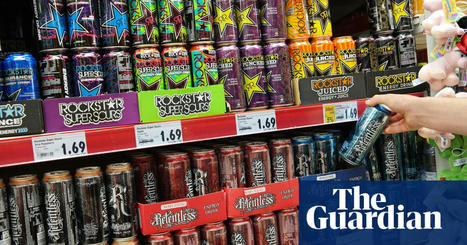


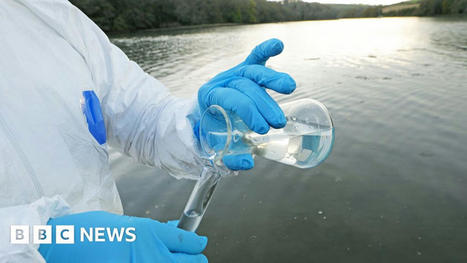


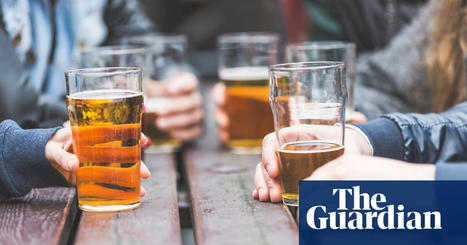
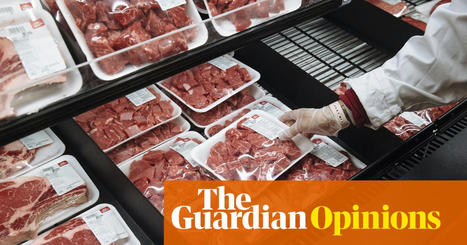
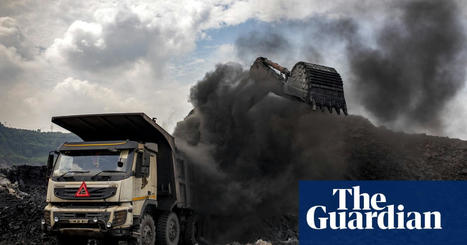
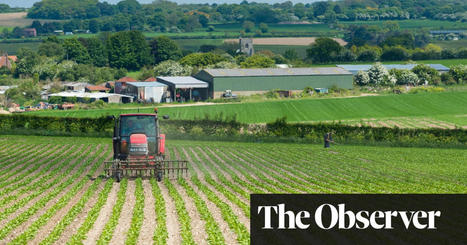


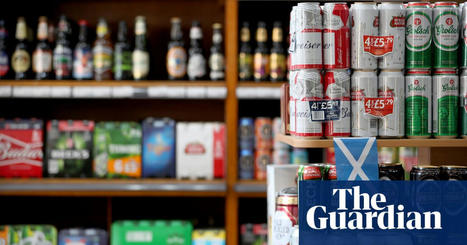
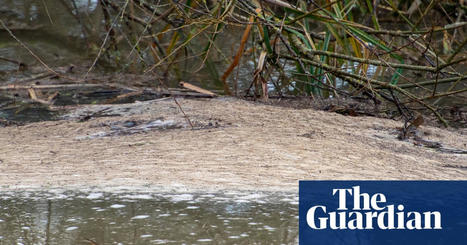

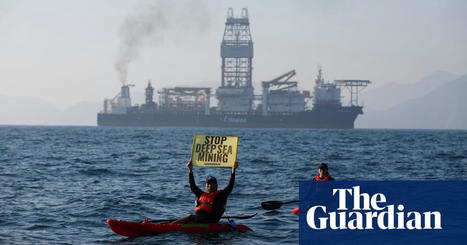
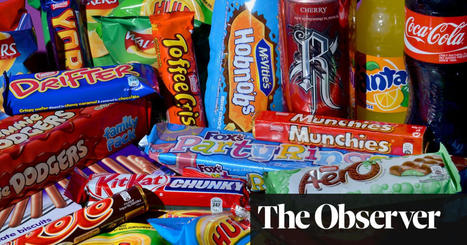
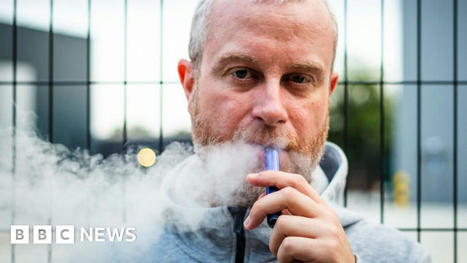






There's going to be tougher regulation of online slot machines, in line with fixed odds betting terminals (FOBT), so that under-25s will be limited to a £2 stake, and older gamblers will be allowed to stake £5. It's an attempt to limit the negative externalities that arise from problem gambling.
It will, of course, cost gambling companies a lot of money, One earlier study suggested that a £8.50 minimum stake would cost them £185m. However, this is a more stringent limit.